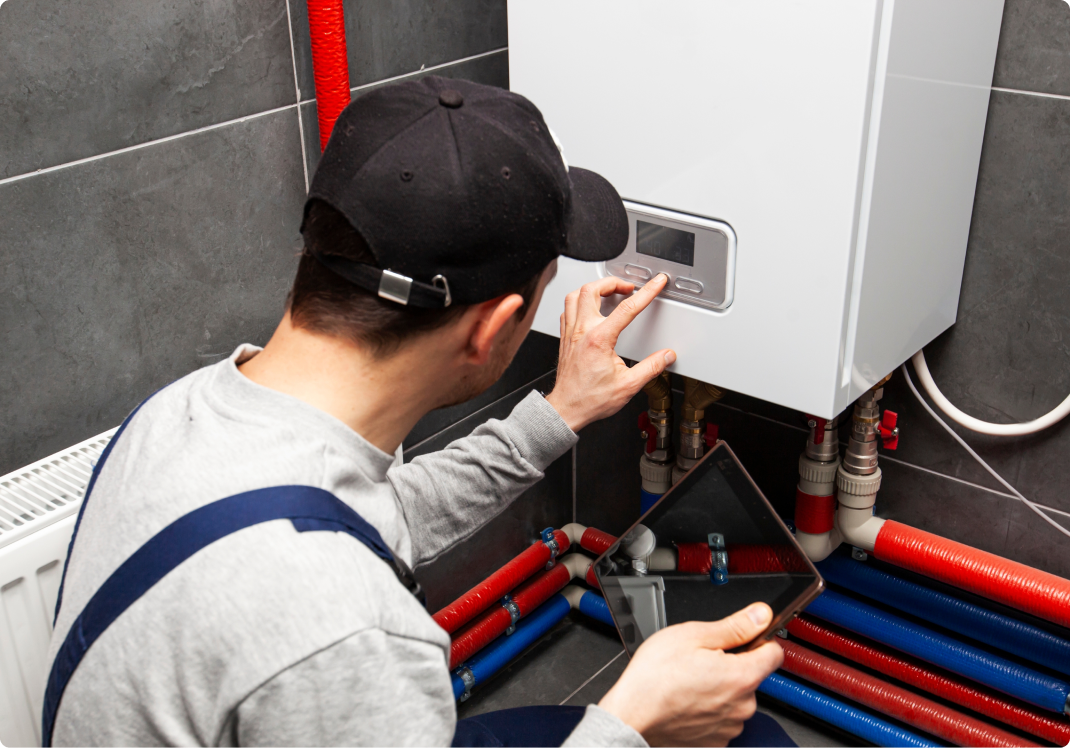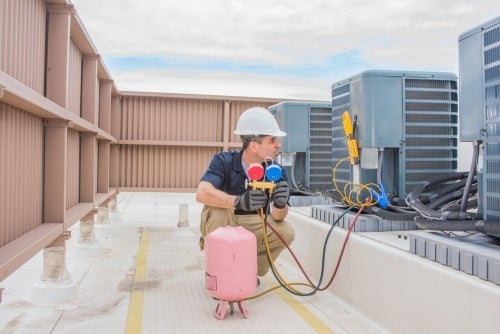When there’s a chill in the air, the last thing you want to deal with is a broken heating system. One of the most important things you can do to help keep your home comfortable in the cold months is to schedule a pre-season HVAC tune-up.
American Home Shield® is here to answer tune-up questions so you understand the benefits.
How often does an HVAC system need a tune-up?
You should ideally get two pre-season tune-ups a year - one in the spring for your air conditioner so you can ensure it's ready for the hot, summer months ahead and another in the fall to prepare for the winter.
Put a reminder on the calendar at the end of summer or the beginning of fall to book your heating system tune-up—and make sure to schedule it in advance. Fall is a very busy season for this service, and no one wants to be without heat when the temps drop.
In between tune-ups, we also recommend changing your air filters every 1-2 months to prevent major HVAC issues and to ensure good indoor air quality.
Why does my heater need a tune-up?
According to research by ClearVantage, the typical cost to repair or replace a furnace or heating unit is $120 to $6,000*—without a home warranty plan from American Home Shield®. Nobody wants to deal with an expense like that if they can avoid it.
Basic preventive maintenance, like a heating tune-up, can help extend the life of your unit, ensuring you don’t have to replace it before it’s necessary—but that’s just one advantage of a pre-season tune-up service.
Benefits of a heater tune-up
For a minimal cost, a heater tune-up provides several repair and maintenance benefits:
- Lower utility bills. You can lower your electric and gas bills by ensuring your heating system is performing as efficiently as possible. Heating costs can account for a large portion of these bills in the fall and winter, and a tune-up will help ensure your unit uses energy efficiently.
- Better airflow and air quality in your home. An annual tune-up service will help maintain proper airflow throughout your home. If problems with your unit restrict the airflow into your house, air won’t distribute evenly, and your home won’t heat consistently. Technicians will also check your filters, which will help improve air quality.
- Enhanced safety. A heating unit that isn’t regularly serviced can develop leaks in the heat exchanger. These leaks are caused by cracks due to a lack of maintenance and airflow issues, which can lead to dangerous carbon monoxide levels in your home. Additionally, technicians will check burners for proper operation and combustion.
- Fewer major breakdowns and expensive repairs. A broken heating unit can be a real emergency when temperatures are at or below freezing. Getting your heater serviced reduces the risk of serious problems occurring throughout the season. Tune-ups can help to diagnose minor issues that could turn into serious, expensive problems down the road.
Bottom line: A heater tune-up can save a substantial amount of cash in the long run, just like adjusting your thermostat to save money.





